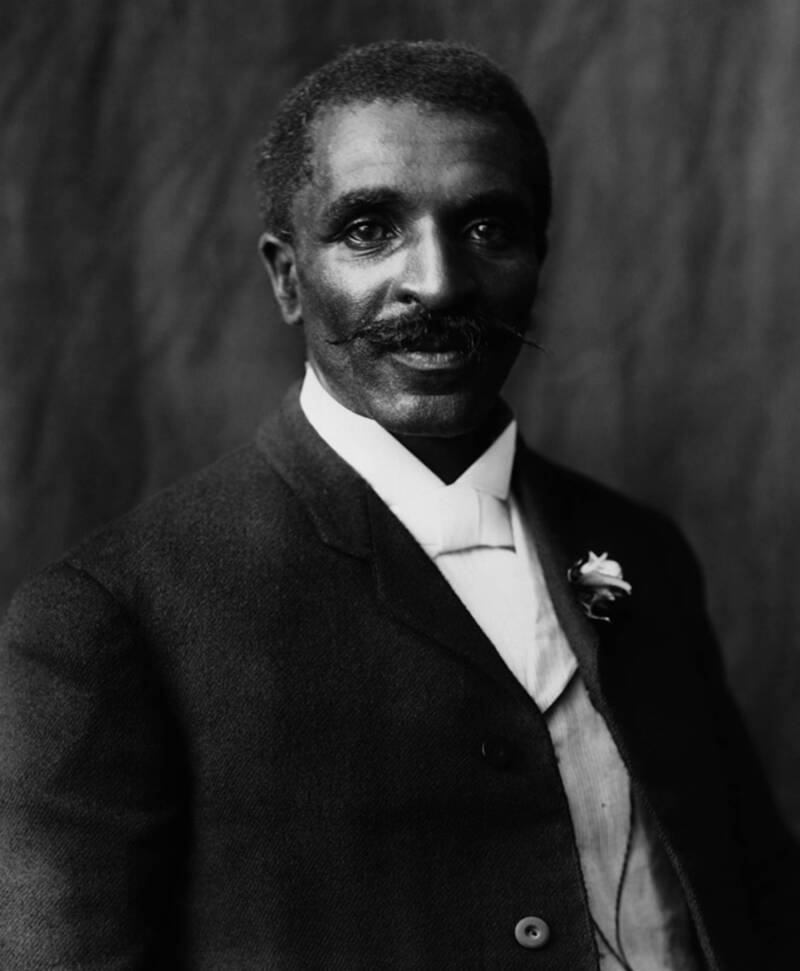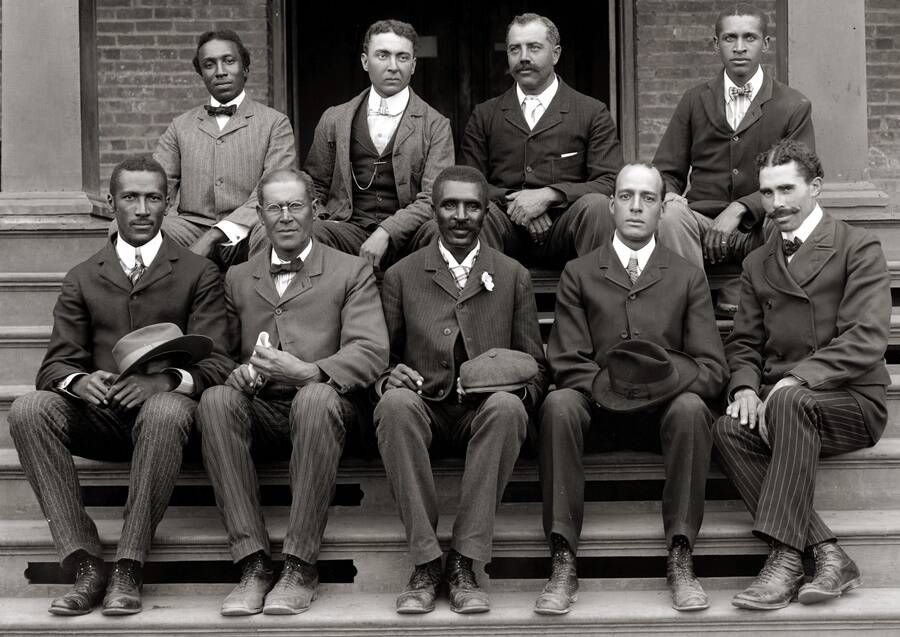George Washington Carver: Agriculturalist Who Revolutionized The Food Industry

Wikimedia CommonsGeorge Washington Carver is credited with revolutionizing the agriculture of peanuts.
If you’re a fan of peanuts or enjoy any food products that contain peanuts, you can thank George Washington Carver.
George Washington Carver was born a slave in Missouri (likely around 1864). When he was just a baby, he and his family were kidnapped by slave raiders. Carver’s white slaveholder tried to find the whole family, but only succeeding in locating George, whom he later taught how to read and write.
Once he grew up as a free man, Carver was initially accepted into an all-white college but was turned away when school officials realized he was Black. So he decided to attend what is now Iowa State University, where he became the first Black student to earn a Bachelor of Science degree.
Encouraged by his professors, he stuck around for graduate studies and received a Master of Agriculture degree as well. He was eventually recruited to teach at the Tuskegee University in Alabama by Booker T. Washington, a famous Black educator.
Carver made his name as a botanist doing research for agricultural alternatives. He devoted much of his agricultural research into finding a sustainable substitute for cotton, mainly as a way for Black farmers in the South to shift away from relying on it. Enter the peanut.
Ultimately, he would go on to develop more than 300 food, industrial, and commercial products from peanuts, including milk, Worcestershire sauce, cooking oils, paper, cosmetics, and soaps.

Wikimedia CommosCarver (front center) with other members of the Tuskegee University faculty.
In 1921, George Washington Carver testified before U.S. Congress, arguing in favor of a tariff on foreign peanuts. He did so while eating alternative peanut food products, to which one congressman asked if the botanist wanted watermelon — an obviously racist question.
But Carver kept his cool. His presentation was so captivating that Congress gave him unlimited time to make his case. The chamber erupted in applause after his testimony and the tariff was later passed.
When he was in his late 70s, Carver was infamously denied accommodation at a New York City hotel because he was Black. The news made national headlines and underlined the pervasiveness of racism in America even for figures as famous and accomplished as Carver.
Like many Black inventors from the past, Carver’s legacy is complicated by racism. Despite his influence, he was notably apolitical and some still question the extent of his contributions to agricultural science.
But one cannot ignore the context in which he achieved his success — he was a famous Black scientist who had been born a slave and became successful during the Jim Crow era. His genius and his identity as a Black man in white America were interpreted in many ways by different parties who had their own agendas.
“His success both instilled Black pride and soothed segregationist consciences, and also gave hope to those left out of the American dream while justifying the position of the successful,” wrote Linda McMurry, author of the biography George Washington Carver: Scientist and Symbol.
Still, George Washington Carver’s legacy broke through the noise. In 1941, three years before his death, he was dubbed by Time as the “Black Leonardo” and was the first non-president to have a monument erected at his birthplace by the National Park Service.





